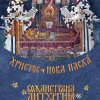Vunjak received her B.S., M.S., and Ph.D. in chemical engineering from the University of Belgrade, in Belgrade, Serbia. After her postgraduate study in Germany, she returned as a faculty to the University of Belgrade in its Chemical Engineering Department. Before arriving at Columbia, Vunjak worked as a Fulbright Fellow at Massachusetts Institute of Technology's Harvard-MIT Division of Health Sciences and Technology from 1986 to 1987. She was an adjunct professor at Tufts University and from 1989 to 1992 a visiting professor in the Netherlands and MIT.
Vunjak was elected a fellow of the American Institute for Medical and Biological Engineering in 2002 and a member of the National Academy of Engineering in 2012. In 2007, she became the first woman engineer to receive the distinction of giving the Director's Lecture at the National Institute of Health. In 2008, she was inducted into the Women in Technology International Hall of Fame, and in 2009, she was elected to the New York Academy of Sciences. Vunjak is a recipient of the Clemson Award given by the Biomaterials Society.
"Politika" Interview (pdf 1.6 MB)
External links:






